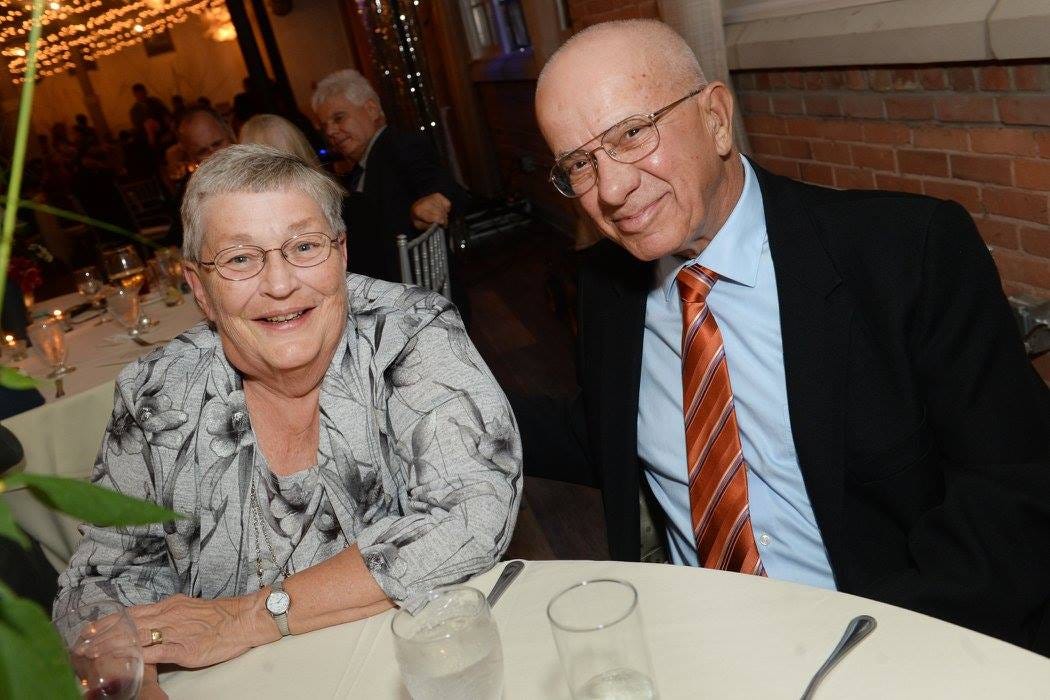Grief in the time of Coronavirus
"Now, that intensely personal grief is intermixed with the larger societal grief we’re all experience."

March 11 is the day I’ll remember.
It was the Wednesday when the Covid–19 pandemic was turning from an international story we kind of followed into one that would irrevocably change our lives. We had a faculty meeting with our dean, who told us that by the end of the day, we could expect an announcement that classes would move online for at least the next few weeks. Less than an hour after that meeting, New York Governor Andrew Cuomo announced that all SUNY and CUNY schools would be online for the rest of the semester.
It was an insane afternoon, where nobody knew anything but we knew the world was changing.
I got into my car around 5 p.m. to drive home, not sure what was coming next, not knowing how many more times I would see my students or come to campus this year.
And all I wanted to do was call my mom.

2020 began with such optimism.
It seems insane to say that now, but it really did.
My mom spent most of 2019 in various cancer treatments, as the lung cancer she was first diagnosed with in 2017 had come back with a vengeance. Chemo took her hair but didn’t touch the cancer. A first clinical trial didn’t help much, as the cancer spread to her spine and her lymph nodes. A second clinical trial wrecked her stomach and her appetite, but seemed promising. Near the end of 2019, we learned that her the cancer in her lung and lymph nodes was gone and that the tumor in her spine had shrunk considerably.
2020 was going to be a good year.
She fell one night in January, landing her in the hospital for a weekend. At first, we all thought it was severe dehydration. Easy fix. A bump in the road.
But the bad news started coming fast — something we’ve all become used to.
She came home but it was clear she was going downhill. She quickly wound up back in the hospital. The optimism of the New Year gave way to the stark reality of 2020. The cancer had spread to her adrenal glands and had irrevocably damaged her back and her spine. We were told she had three-to-six months.
In the end, we had less than three weeks.
In the span of one week, talk went from her going home to going to rehab for a few weeks to hospice care. She was in hospice care for less than a week before dying in the early morning hours of Feb. 16.
In so many ways, my mom’s passing was a blessing.
We all got to say good bye to her, to say all the things we wanted to. My dad, married to her for 47 years, got to kiss her hand one last time before going home. She suffered so much at the end, it was good that she didn’t linger. And given what has happened in the past month, it was a blessing that she passed before the necessary restrictions on visitors to senior-care facilities took effect.
But still.
At my mom’s calling hours, one of my closest friends (who had lost her own father a year earlier) said something profound. I’m not going to ask you how you are, she said, because you don’t know yet. Man, is that true. There’s no better definition of grief than not knowing how you’re feeling. It’s waves of sadness and anger. It’s stretches of malaise mixed with motivation and memories.
We were prepared for my mom’s death, but nothing could prepare us for my mom being gone.
The logistics and the emotions have dominated my world for a full month.
And then, the entire world stopped.
For the first month, grieving for mom’s death felt impossibly large — bigger than anything else going on in the world. For the past two weeks, my personal grief for my mom has felt so impossibly small that indulging in it feels almost selfish.
Now, that intensely personal grief is intermixed with the larger societal grief we’re all experience. The logistical details of my mom’s passing are now co-mingled with the immense logistical details of moving school and work and life around.
There’s no NCAA Tournament. Governor Cuomo has become almost a national folk hero. My daughter is keeping up with fourth grade via worksheets, Google Docs and Zoom theater rehearsals.
And all I want to do is call my mom.
Sports journalism news from this week:
The Athletic suffers identity crisis over cancelled sports fixtures by Patricia Nilsson
While The Athletic’s reporting has extended “beyond just match reports” to include more in-depth pieces, Douglas McCabe, media analyst at Enders Analysis, warned: ”If your entire business is sports journalism, this is a challenging period.” The Athletic is not alone. Every media outlet was going to have to “think very creatively” about its sports coverage, Mr McCabe said.
Historic Games, Documentaries And … Marble Races: ESPN Without Live Sports by David Folkenflik
“It’s a weird position for the network to be in,” Schaap says. "No one knows how many people are going to die, how many more people are going to be suffering and seriously ill. And sports intersects with society at large and especially in a situation like this. So, of course, there are stories that we should be covering and stories that we will be telling. But at a certain point, the question is going to be: How much does it matter?
Writing about sports in the time of COVID–19 by David Murphy
This is bigger than sport. That’s what they say in times like these. But maybe it is times like these that reveal the reality of the role that sport actually fills. I have long suspected that part of our attraction to our games lies in the sense of certainty imparted by a field of play in which the rules and boundaries and objectives are clearly defined. Does it feel strange to write about sports? Sure. But it does not feel strange at all to wish they’d return soon
When there are no sports to write about, no games to cover, the paychecks stop rolling in. The Associated Press honored some of the events he was going to cover by picking up the tab and paying him regardless. “It sure would be nice to continue to get paid in some way, shape or form, but I’m not a full-time employee,” Romero said. “I’m not on staff. I’m not on the payroll.”
SPORTS JOURNALISTS ON COVERING STORIES BIGGER THAN THE SPORT ITSELF by Joseph Casciaro
However, there are still some journalists who choose to focus their work around these cultural issues in sports, with the work of these dedicated journalists bringing crucial stories into the light. Stories like that of Colin Kaepernick and his views on the treatment of racial minorities in the United States or the sexual assault convictions of former USA Gymnastics doctor Larry Nassar are arguably two of the biggest stories in sports history.
This Week at Sports Media Guy
Subscribe here and get posts delivered right to you.
Questions about sports journalism’s future
Thinking longer term, what does this era mean for the economics of sports journalism? It’s not like the industry was economically thriving before all this happened. What happens when if/when the economy goes into a recession or worse? (For all the decades of mismanagement that plagued the newspaper industry, it was the 2008 recession that was the real fatal blow).
‘Let the effort, not the byline, be your reward’
Do your best, regardless of space, time constraints, fatigue at the end of a long workday or the relative importance of the event in the day’s news cycle. Sometimes, the words flow easily. Often, you grind them out. Regardless, do your best.
The Other 51

EPISODE 113: INTOXICATED BY THE LANGUAGE WITH DR. RICK SIMPSON
Dr. Rick Simpson was … is … one of those teachers. ?Simpson, who was an English professor at St. Bonaventure University for 46 years, and Brian reconnect this week. Brian, who took three classes with Doc Simpson, gets to say thank you for teaching him some of the most valuable writing lessons of his life. Simpson talks about how the sportswriters he read as a kid in San Francisco in the 1950s influenced him as much as the English authors and poets he later taught. Simpson and Brian discuss how modern sports writing can be thought of as poetry, as well as the best lessons that Doc taught again and again. Always think about your audience. Grammar doesn’t matter but it does. Did he mention audience? And of course, there are jazz recommendations. If you had Doc Simpson as a professor at St. Bonaventure, this is like going back in time to one of his classes.
Subscribe:
Apple Podcasts
Spotify
Overcast
Google Play
RSS
The Flip Side
Brian and Galen are back for more talk on the important issues of our day:
• What are the best store-bought cookies?
• What single cut of meat would you live on for all of quarantine?
• Why is media coverage of this crisis so … odd?
Subscribe:
Apple Podcasts
Spotify
Stitcher
RSS
Thanks for reading. If you like this newsletter, my blog, my podcasts, please share it with anybody you think would like it.


